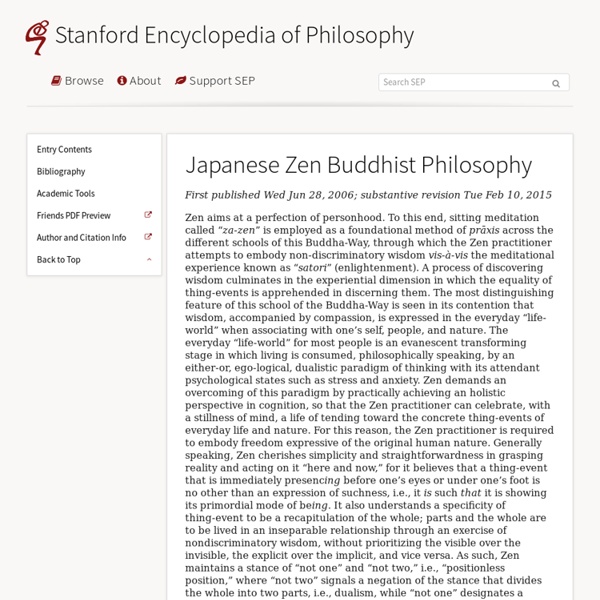Japanese Zen Buddhist Philosophy

How to Detect Lies - body language, reactions, speech patterns
Interesting Info -> Lying Index -> How to Detect Lies Become a Human Lie Detector (Part 1) Warning: sometimes ignorance is bliss. After gaining this knowledge, you may be hurt when it is obvious that someone is lying to you. The following deception detection techniques are used by police, forensic psychologists, security experts and other investigators. Introduction to Detecting Lies: This knowledge is also useful for managers, employers, and for anyone to use in everyday situations where telling the truth from a lie can help prevent you from being a victim of fraud/scams and other deceptions. This is just a basic run down of physical (body language) gestures and verbal cues that may indicate someone is being untruthful. If you got here from somewhere else, be sure to check out our Lie Detection index page for more info including new research in the field of forensic psychology. Signs of Deception: Body Language of Lies: • A person who is lying to you will avoid making eye contact. Bored?
Essentialsof Buddhism - core concepts
The 48 Laws of Power
by Robert Greene and Joost Elffers Law 1 Never Outshine the Master Always make those above you feel comfortably superior. Law 2 Never put too Much Trust in Friends, Learn how to use Enemies Be wary of friends-they will betray you more quickly, for they are easily aroused to envy. Law 3 Conceal your Intentions Keep people off-balance and in the dark by never revealing the purpose behind your actions. Law 4 Always Say Less than Necessary When you are trying to impress people with words, the more you say, the more common you appear, and the less in control. Law 5 So Much Depends on Reputation – Guard it with your Life Reputation is the cornerstone of power. Law 6 Court Attention at all Cost Everything is judged by its appearance; what is unseen counts for nothing. Law 7 Get others to do the Work for you, but Always Take the Credit Use the wisdom, knowledge, and legwork of other people to further your own cause. Law 8 Make other People come to you – use Bait if Necessary Law 9 Law 10 Law 11 Law 12 Law 13 Law 14
Fascism
Over at Rense.com they have printed a list of the defining characteristics of a fascist state. The list was compiled by Dr. Lawrence Britt, who studied the fascist states of Hitler's Germany, Mussolini's Italy, Franco's Spain, Suharto's Indonesia and several Latin American fascist regimes. He found that all of them had the same 14 characteristics, which are listed below. Every freedom-loving American should read and study this list carefully because we are currently treading the same path. Frankly, this list scares the hell out of me and it should scare you. Each time we demonize our opponents or engage in intolerant actions we lose some freedom and grow closer to fascism. 1. 5. Link to original post
40 Belief-Shaking Remarks From a Ruthless Nonconformist | Raptitude.com
If there’s one thing Friedrich Nietzsche did well, it’s obliterate feel-good beliefs people have about themselves. He has been criticized for being a misanthrope, a subvert, a cynic and a pessimist, but I think these assessments are off the mark. I believe he only wanted human beings to be more honest with themselves. He did have a remarkable gift for aphorism — he once declared, “It is my ambition to say in ten sentences what others say in a whole book.” Even today his words remain controversial. Here are 40 unsympathetic statements from the man himself. 1. 2. 3. 4. 5. 6. 7. 8. 9. 10. 11. 12. 13. 14. 15. 16. 17. 18. 19. 20. 21. 22. 23. 24. 25. 26. 27. 28. 29. 30. 31. 32. 33. 34. 35. 36. 37. 38. 39. 40. More of Nietzsche’s genius here. Have a lot on your mind? Everyday mindfulness has transformed my life, and the lives of many others.
Western Philosophy
Related:
Related:



